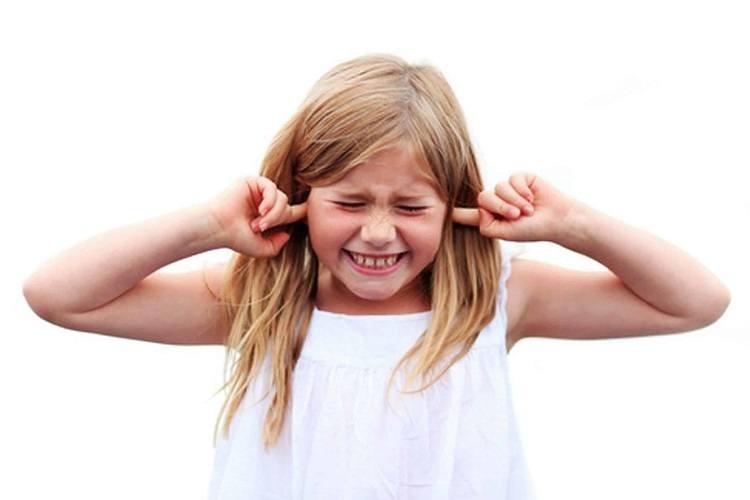Why Is My Garage Door So Noisy?!

Garage doors will make some noise when they open and close. That’s completely normal and nothing to be concerned about, but if the level of noise your door makes has increased ten-fold recently or there are lots of loud screeching noises, it's a sure sign that all is not well and that something needs to be done.
Can these issues be remedied and your door be restored to a smooth, noise-free (well, almost) operation? Yes, they can, and in many cases, these are fairly quick garage door repairs that a pro can make.
Causes of Loud Garage Doors
There are multiple reasons why a garage door might be producing a lot of noise when it’s in motion. The first step before any garage door repair can be carried out is identifying the source of this noise. Below we’ll run through some of the more common ones that we come across in Loveland.
Broken/Damaged/Worn Out Rollers
On either side of your garage door opening you have a set of tracks installed, which the rollers run up and down as your door opens and closes. This is one of the first things that should be checked when doors suddenly get noisy, especially if you have metal rollers. If these have rusted, not been lubricated or are in some way damaged, you will likely hear some sort of screeching sound.
Observe the rollers in motion. Keep in mind that they should be rolling freely and not sliding along the tracks. If they are sliding that can generate significant noise.
Tracks that are Loose
The tracks themselves should also be checked. Firstly to ensure that they’re clear and there’s nothing the rollers could be catching on. But secondly to ensure that they’re firmly secured to the wall. Over time, the screws can come loose and can cause a rattling sound when the door is in motion.
Worn/Damaged Hinges
Just like with rollers, hinges are parts that over time will become worn and cause noise. Typically a sort of grinding noise. See if they look worn out or whether there are any visible cracks. If they do, they’ll have to be replaced, as they may not just be producing noise, but putting you in danger too. Call a garage door repair expert if this is the case, as replacing them without the proper equipment is very risky. Your door could fall on you! If the hinges still look up to the job, the noise they're making can be dialed down several notches by applying a little bit of silicon-based grease.
Unbalanced Door
Your garage door needs to be perfectly balanced to function at its best. If its balance is even a little out of whack, extra pressure can be placed on certain components and noise can be generated. It’s a relatively simple test to perform, but should be carried out by a garage door repair pro in Loveland, given that the garage door’s weight needs to be lifted. This can be dangerous if you don’t know what you’re doing.
Torsion Spring is “Dry”
Torsion springs for a garage door are vital. They take a lot of the weight of the door and help to lift it. But they could also be the cause of your noisy garage door too. Is the noise that you’re hearing a kind of loud “popping” noise? If so, it’s quite possible that it’s the springs that need some lubricant added.
When Was the Last Time You Lubricated Key Components?
We’ve just mentioned lubricant, but it’s worth talking about it a bit more here, as the most common reason for loud garage doors that we come across when called out for garage door repair in Loveland is without doubt a lack of lubricant. Luckily it’s also the simplest issue to remedy.
Your garage door has lots of moving parts and keeping them well lubricated is key. If you’ve suddenly started hearing squeaking or screeching noises, there’s a good chance that this is your garage door telling you more lubricant needs to be applied.
Without this lubrication, key components can become stiff and generate significant friction, which is what causes the noise. In particular, lubricant should be added to the springs, onto the rollers (if they're metal), along the tracks, and onto the chain of your garage door opener if it uses one.
Upgrades that May Reduce Garage Door Noise
Sometimes garage door repair and troubleshooting doesn't just focus on components that are no longer functioning, it could be about updating older, less efficient parts too. Here are a couple of examples:
Belt-Driven Garage Door Opener
Garage door openers can often produce a significant amount of noise, especially the older, chain-driven models. If you’re looking to reduce garage door noise, you might want to consider replacing your old opener with a belt-driven model.
Nylon Garage Door Rollers
We talked about rollers earlier, but what we didn’t point out is that metal rollers will always be noisier than nylon rollers. So if you do have metal rollers, consider swapping them out for nylon rollers and you’ll almost certainly notice a significant reduction in noise.
Garage Door Repair in Loveland Just a Call Away!
If garage door noise is driving you crazy and you can’t figure out what is causing it (or you can but can’t fix it yourself), call the team at C & M Garage Doors Inc. We’ll conduct a thorough inspection of your garage door setup, pinpoint the problem and then fix it. Noise will trouble you no more!
